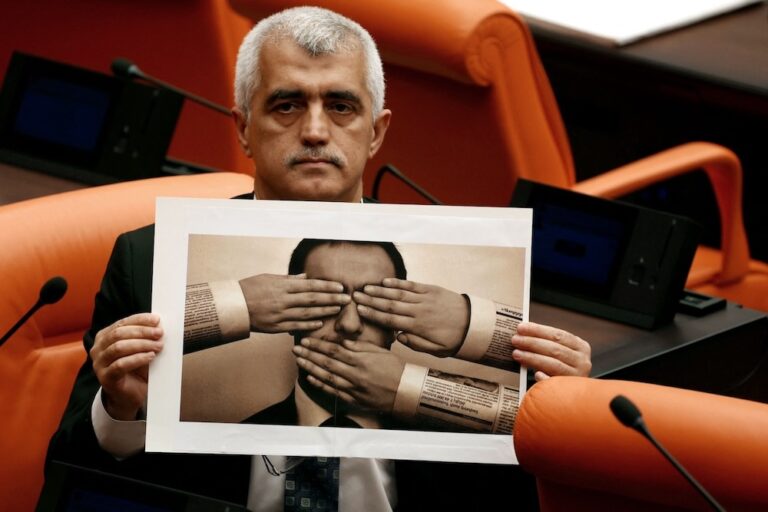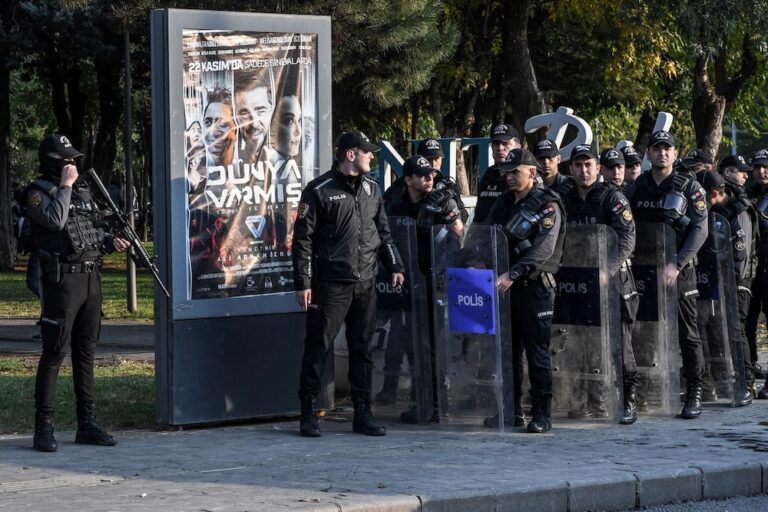Police organised simultaneous raids at 25 locations in the country that were alleged to be connected to the Kurdistan Workers' Party.
(BIANET/IFEX) – More than ten people were arrested in the course of a police raid on the Roj TV studios in Belgium on the morning of 5 March 2010. The police organised simultaneous raids at 25 locations throughout Belgium which are alleged to be connected to the Kurdistan Workers’ Party (PKK). Turkey has previously shown intensive efforts to silence the television station’s Kurdish broadcasts because of its connection to the militant PKK.
Roj TV director Gülsen Emsiz and journalists Burhan Erdem, Devrim Akçadag and Murat Yaklav were among those arrested. The Firat News Agency (ANF) has reported that employees were not allowed into the Roj studios and the search was still going on in the afternoon of 5 March. A statement by the federal prosecution was expected in the evening.
Both the PKK’s struggle with the military and publications regarding the Kurdish question are seen as “propaganda” by the judiciary and may be heavily fined in Turkey. While the Foreign Ministry tries to block television broadcasts via satellite, people appearing on those stations may face trials. As a result of Turkish initiatives, the broadcasting of Med TV and Medya TV was recently blocked in England and France.
When Roj TV began broadcasting in Denmark in 2004, the Turkish Foreign Affairs Department applied for the cancellation of its broadcasting license. Former Land Forces Commander Yasar Büyükanit and then Deputy Chief of General Staff Ilker Basbug also said that the TV station should be closed.
In a joint press conference held by Turkish Prime Minister Recep Tayyip Erdogan and former Danish Prime Minister Anders Fogh Rasmussen, Erdogan requested that a journalist from Roj TV be removed from the hall. Erdogan himself then left because the journalist was not excluded from the press conference. The topic was brought up again by Turkey when Rasmussen was to be appointed as the secretary general of NATO.
Publication and broadcasting bans are difficult to impose in European countries where freedom of expression for non-violent content is granted. The Danish broadcasting authorities rejected the application to ban Roj TV because, in their opinion, violence was not promoted in the station’s broadcasts. The decision led to a diplomatic crisis between the two countries.
Several people have faced prosecution for speeches they have made on Roj TV at different times, notably Dicle (‘Tigris’) News Agency (DIHA) representative in the Van region Siddik Güler, mayor of the closed Democratic Society Party (DTP) Hüseyin Kalkan, Head of the Tunceli Bar Association Mahmut Alinak, Özgür Ulas Kaplan, Labour Party (EMEP) Provincial Chair Hüseyin Tunç and Diyarbakir Human Rights Association (IHD) Branch President Selahattin Demirbas.
Furthermore, 53 DTP mayors also stood trial for a letter written to Rasmussen against the closure of Roj TV.
In addition, “Cumhuriyet” newspaper laid off writer Erdogan Aydin because he gave a speech on Roj TV.
Belgium imposed a 4 million euro fine on the Kurdish television station last year and the German Federal Administrative Court has transferred the Roj TV file to the European Court of Justice due to alleged “propaganda for the PKK.” The TV station will be allowed to continue broadcasting until the European court issues a decision.


